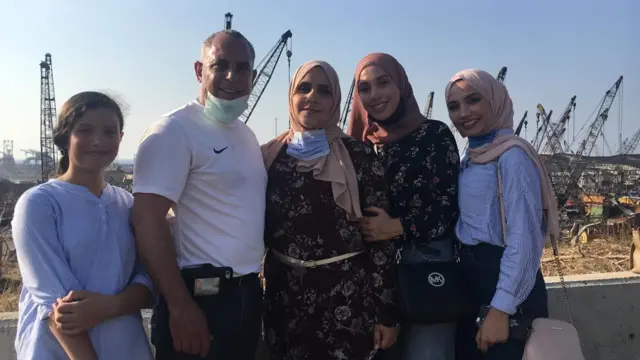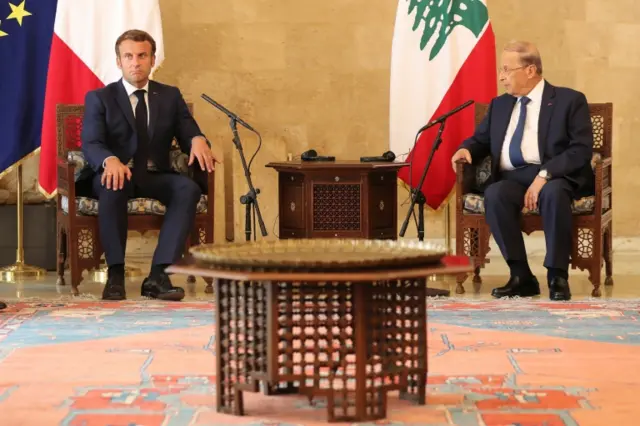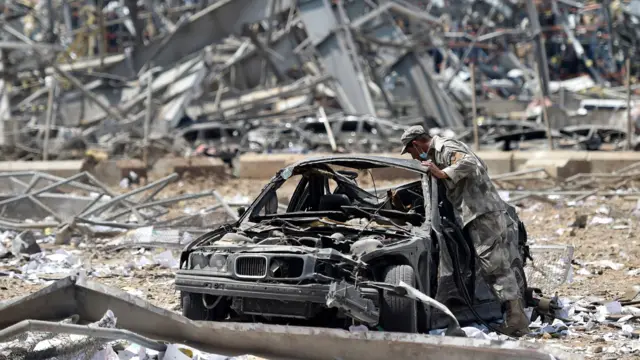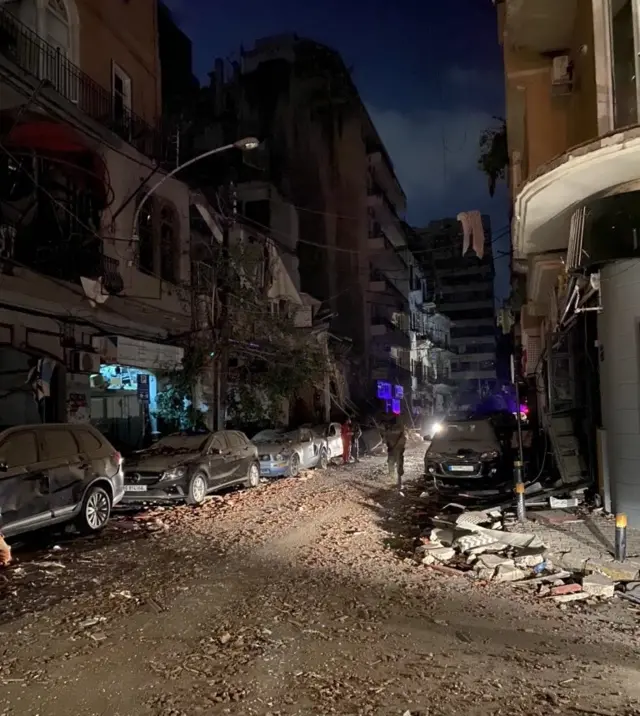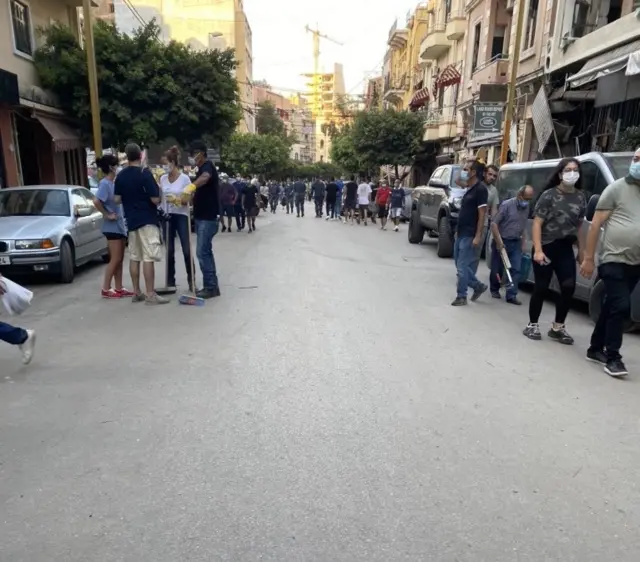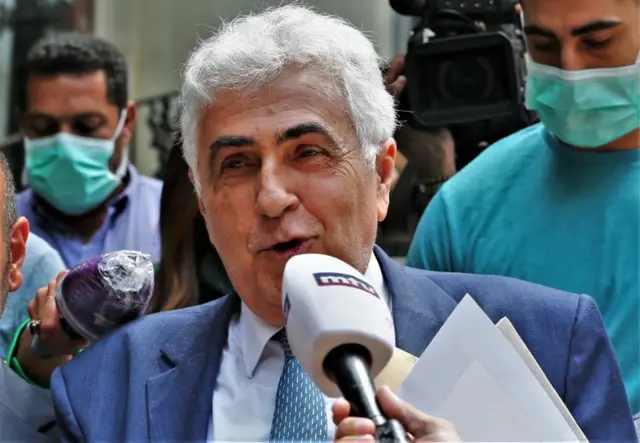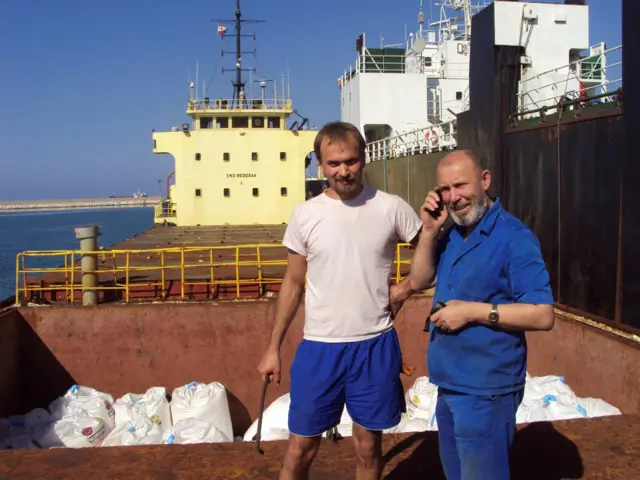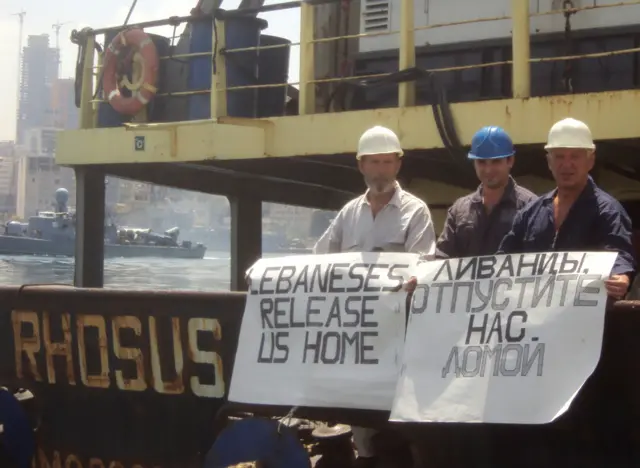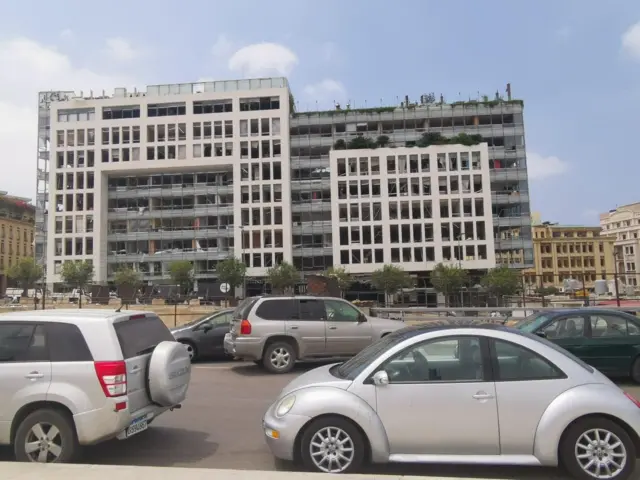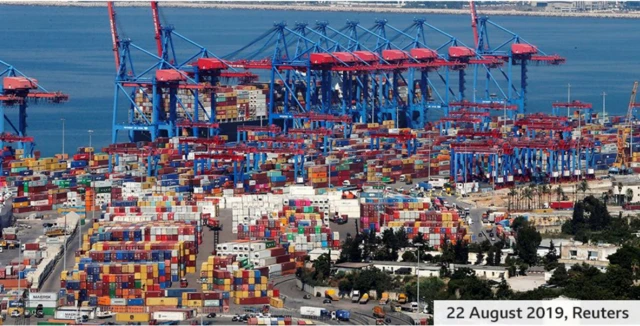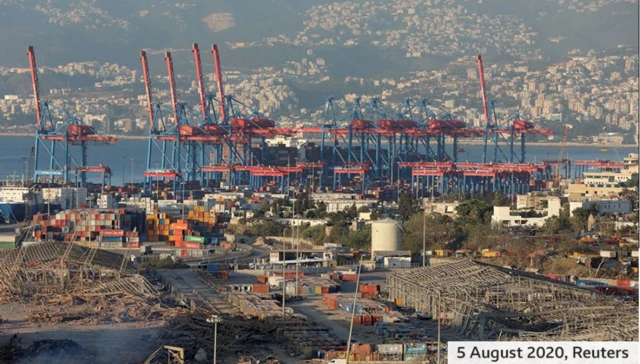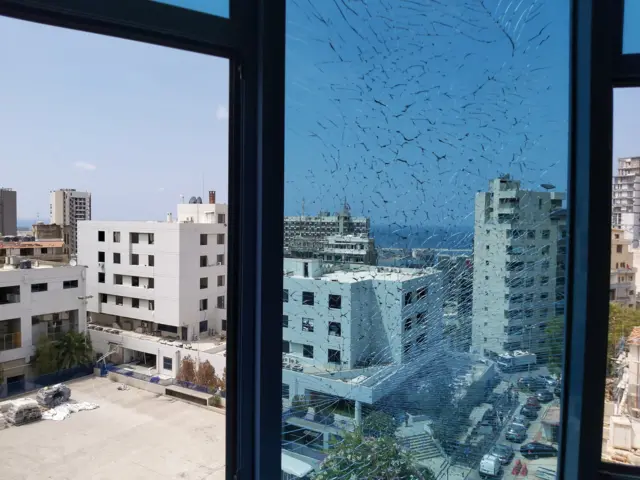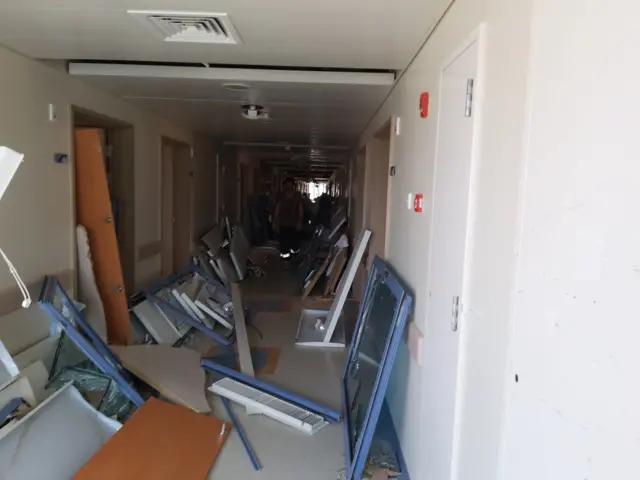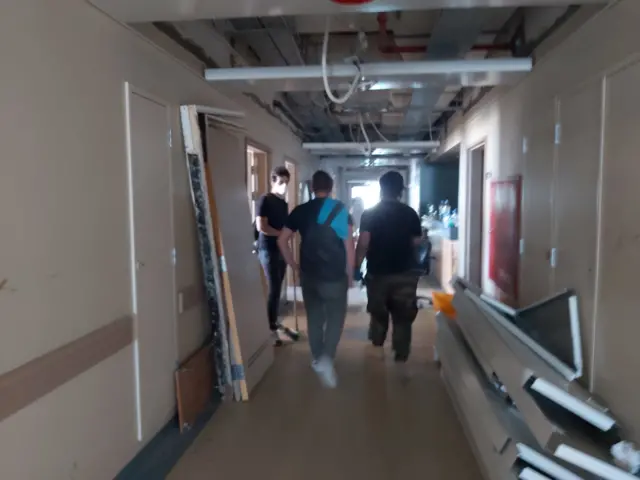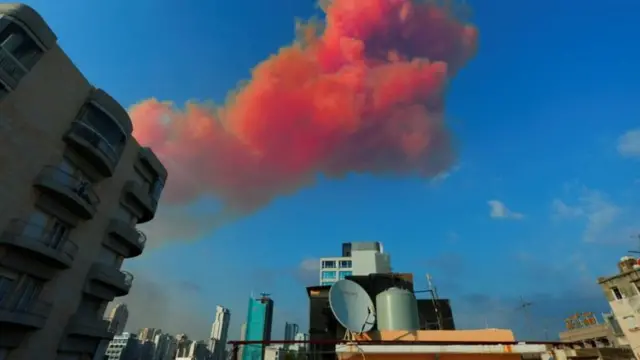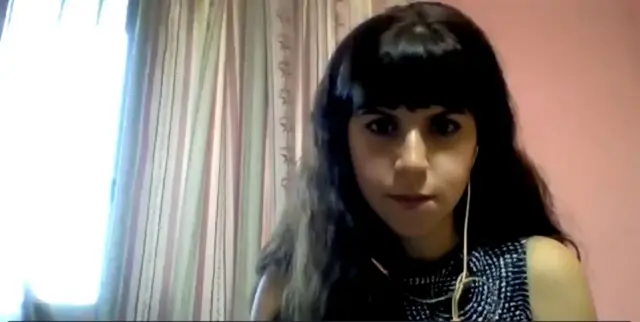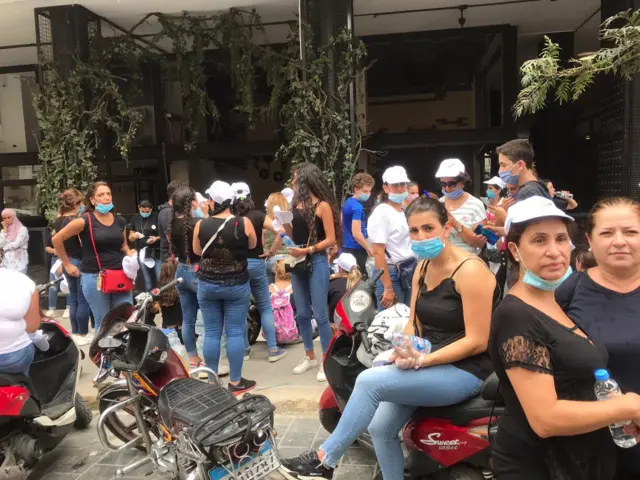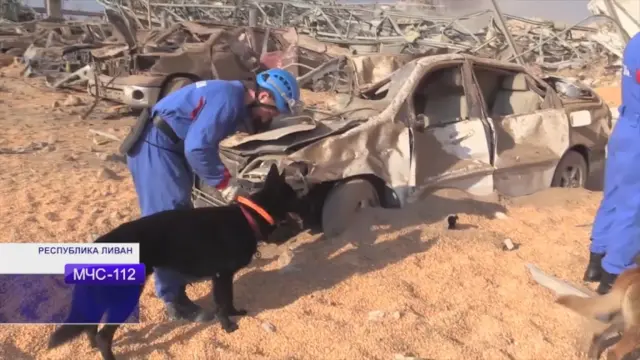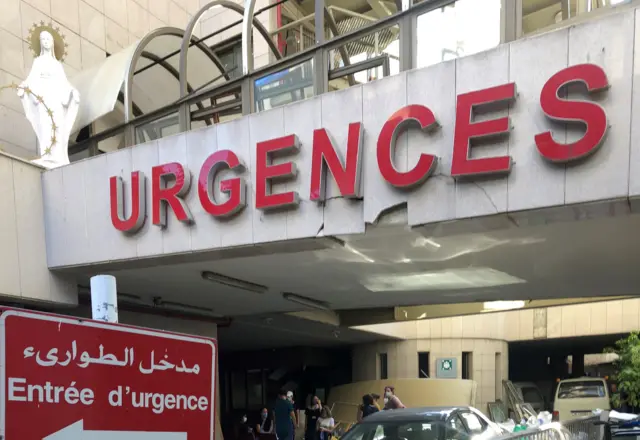That's all from us for nowpublished at 16:06 BST 7 August 2020
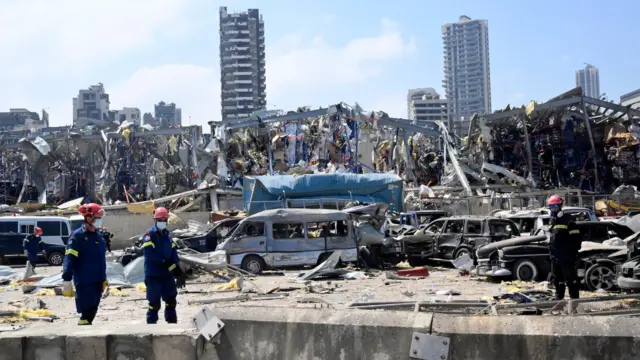 Image source, EPA
Image source, EPAWe're ending our live coverage of the fallout from the Lebanon explosion, but you can keep up with all the latest developments on the BBC News website and across radio and TV.
Here's a quick recap of some of the biggest updates from today:
- The United Nations has warned of a humanitarian crisis resulting from the disaster
- The death toll from Tuesday's explosion has risen to 154 and about 120 people remain in a critical condition, according to official data
- Rescue workers are still searching for dozens of missing people
- About 5,000 were injured and 300,000 made homeless by the blast
- Lebanese President Michel Aoun has rejected calls for an international investigation
- Many in Lebanon blame government negligence for the explosion and BBC journalist Mohamed Madi says "shock is beginning to turn into anger"
- Several local media channels are boycotting speeches from political figures in protest
Today's live coverage was brought to you by Robert Greenall, Thomas Spender, Yaroslav Lukov, George Wright and Alice Cuddy
